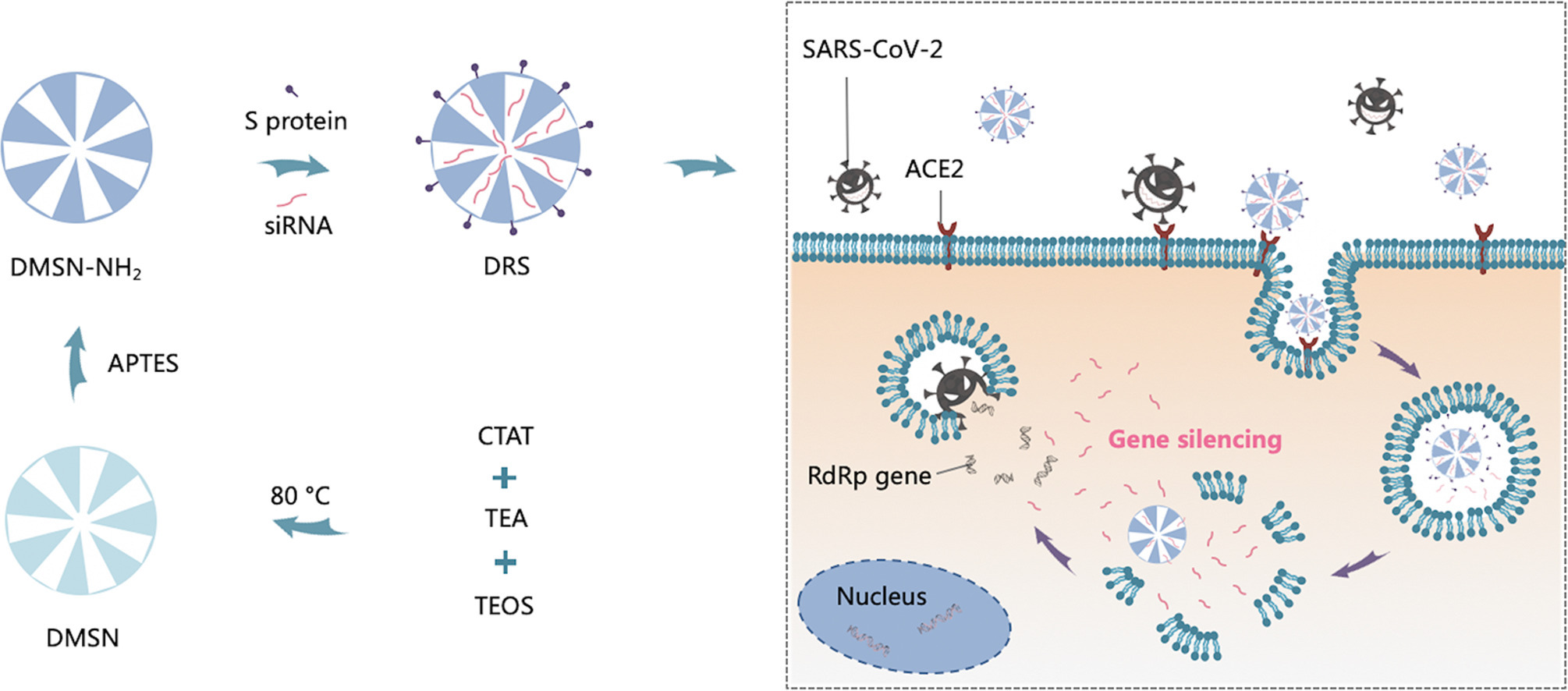A coronavirus-mimic mesoporous silica nanosystem enables efficient targeted delivery of siRNA for anti-SARS-CoV‐2

The severe acute respiratory syndrome coronavirus 2 (SARS-CoV-2) infection has been a threat to human beings’ health. However, there is still a lack of effective specific antiviral drugs for SARS-CoV-2 at present, which calls for the exploitation of new potent and safe therapeutic agents. Short-interfering RNA (siRNA), as a powerful RNA interference (RNAi) tool, can be designed to target virus-related genes and degrade them with high efficiency, presenting great potential for confronting SARS-CoV-2 infection. Despite the promises, effective delivery of synthetic siRNA into the virus-infected host cells for therapy remains a challenge. Herein, a SARS-CoV-2 spike (S) protein-decorated dendritic mesoporous silica nanoparticle (DMSN) was developed for targeted delivery of the RNA-dependent RNA polymerase (RdRp)-specific siRNA for anti-SARS-CoV‐2.
Highlights
- A SARS-CoV-2 spike protein-decorated mesoporous silica nanosystem was designed.
- Nanosystem was developed for targeted delivery of RdRp-specific siRNA for
anti-SARS-CoV‐2.- The siRNA nanosystem could imitate coronavirus to target host cells and promote cellular internalization.
- The siRNA nanosystem improved silencing effect on the RdRp gene in host cells.
The biocompatible DMSN with a large pore structure and surface area enabled the high siRNA loading and protected siRNA from nuclease-mediated degradation. On the basis of the specific binding between S protein and angiotensin-converting enzyme 2 (ACE2) receptor, the designed nanosystem could imitate coronavirus to target the host cells and promote the cellular internalization of siRNA. The results demonstrated that the designed siRNA delivery nanosystem showed an improved silencing effect on the transfected SARS-CoV-2 RdRp gene in the ACE2-overexpressed host cells. Moreover, such nanosystem could be inhaled and accumulated in the lung of living body through a nebulized administration, offering a promising treatment option for SARS-CoV‐2 infection.
Read more here
Jiajie Chen, Yinghui Wang, Chengtie Wu, Yin Xiao, Yufang Zhu, A coronavirus-mimic mesoporous silica nanosystem enables efficient targeted delivery of siRNA for anti-SARS-CoV‐2, Applied Materials Today, Volume 35, 2023, 101952, ISSN 2352-9407, https://doi.org/10.1016/j.apmt.2023.101952.
See our next webinar:
“Enhanced Stability and Bioavailability of Poorly Soluble APIs“,
18 October 2023:
Get more information & register here for free:


